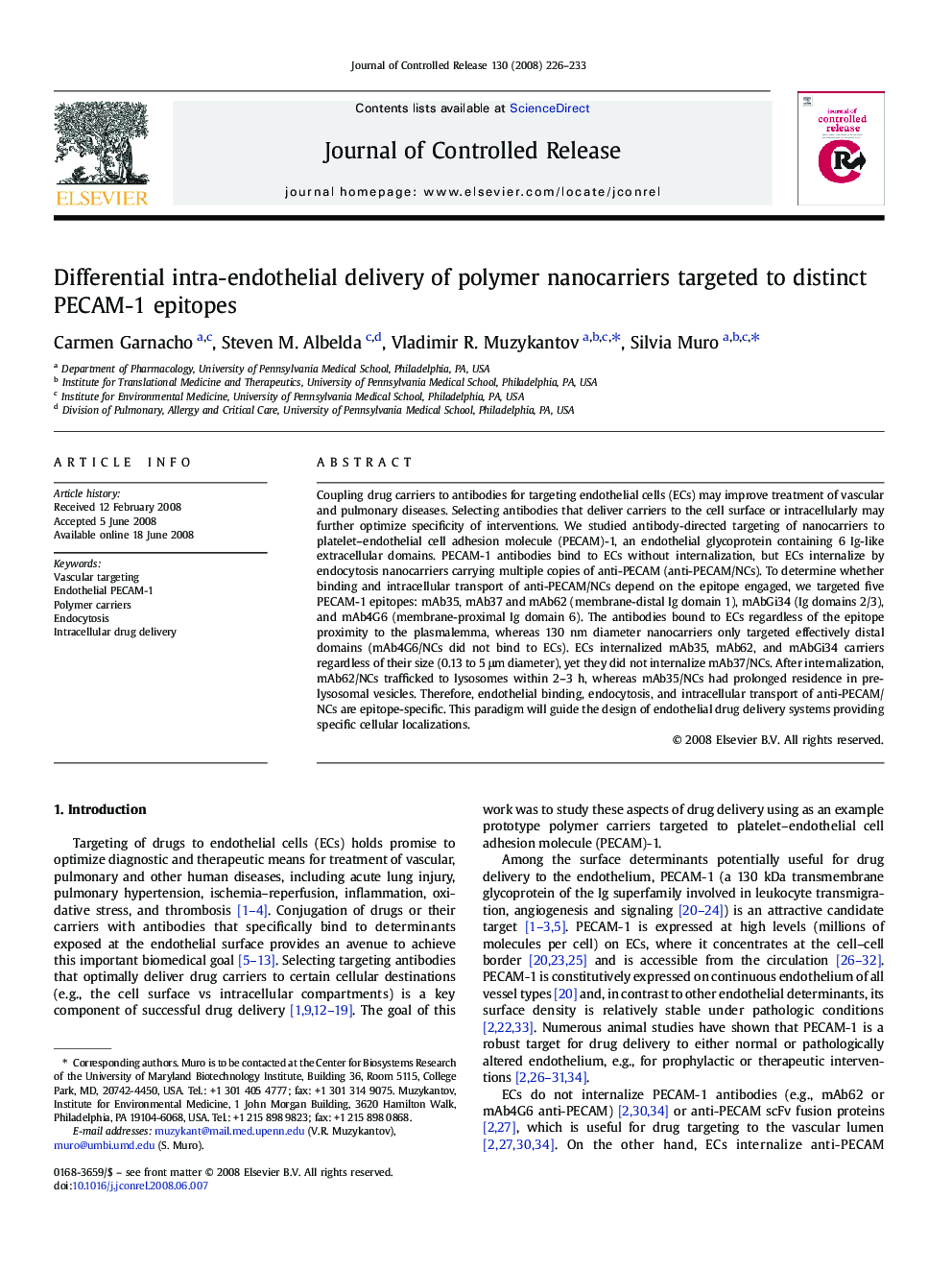| Article ID | Journal | Published Year | Pages | File Type |
|---|---|---|---|---|
| 1426742 | Journal of Controlled Release | 2008 | 8 Pages |
Abstract
Coupling drug carriers to antibodies for targeting endothelial cells (ECs) may improve treatment of vascular and pulmonary diseases. Selecting antibodies that deliver carriers to the cell surface or intracellularly may further optimize specificity of interventions. We studied antibody-directed targeting of nanocarriers to platelet-endothelial cell adhesion molecule (PECAM)-1, an endothelial glycoprotein containing 6 Ig-like extracellular domains. PECAM-1 antibodies bind to ECs without internalization, but ECs internalize by endocytosis nanocarriers carrying multiple copies of anti-PECAM (anti-PECAM/NCs). To determine whether binding and intracellular transport of anti-PECAM/NCs depend on the epitope engaged, we targeted five PECAM-1 epitopes: mAb35, mAb37 and mAb62 (membrane-distal Ig domain 1), mAbGi34 (Ig domains 2/3), and mAb4G6 (membrane-proximal Ig domain 6). The antibodies bound to ECs regardless of the epitope proximity to the plasmalemma, whereas 130 nm diameter nanocarriers only targeted effectively distal domains (mAb4G6/NCs did not bind to ECs). ECs internalized mAb35, mAb62, and mAbGi34 carriers regardless of their size (0.13 to 5 μm diameter), yet they did not internalize mAb37/NCs. After internalization, mAb62/NCs trafficked to lysosomes within 2-3 h, whereas mAb35/NCs had prolonged residence in pre-lysosomal vesicles. Therefore, endothelial binding, endocytosis, and intracellular transport of anti-PECAM/NCs are epitope-specific. This paradigm will guide the design of endothelial drug delivery systems providing specific cellular localizations.
Related Topics
Physical Sciences and Engineering
Materials Science
Biomaterials
Authors
Carmen Garnacho, Steven M. Albelda, Vladimir R. Muzykantov, Silvia Muro,
